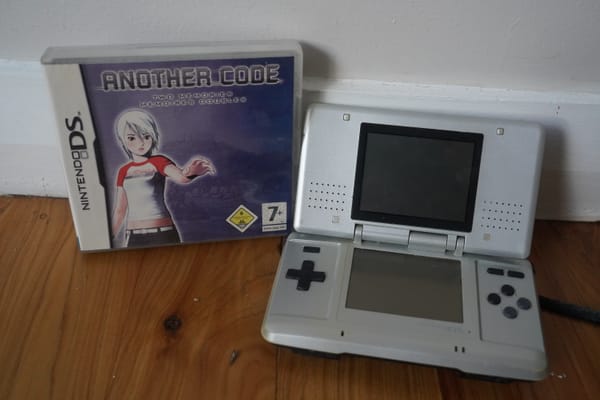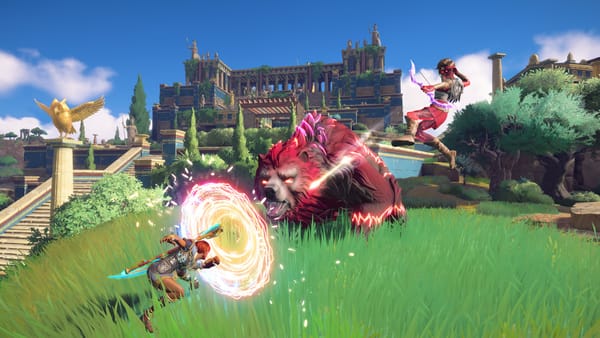External Article: What Gaming Has Taught Us: Sharing
Slow news days are always a pain, but for the rest of the week DS-X2 will be posting articles from the 3 part feature article series by Trent Petronaitis. First one is more of an observation- about sharing.
In the early nineties one of the biggest generations grew up around an entertainment which while seen in the previous decade, was now perceived as a hobbyist addiction and moved out of the dark arcades of the eighties. The family console was now entering homes, while still not perfectly accepted by the mainstream it was a world which was gifted to children by unknowing parents and the previous generations nerds alike. What was to follow is a struggle of understanding and cultural evolution which would shape the world like never before.
The bubble television turned on with a flicker of a consoles logo dancing around on screen with an animation which alerted the youngsters of the game about to start. But something settles in the players stomachs when they realise they have been gifted a single player only game.
The parent stands guard over the kids as the plug in the system for the first time and sees the older child dominating the first go, letting the other child to sit and wait- watching his every move. The parents senses start to dig in, and after what seems like ages to the out of touch parent, starts to feel the need to set things straight.
Pouting around the room screaming that the other child should have a go, it in defiantly leads to the older child been put in time out, leaving the younger child to copy his moves and play the game like the child has just seen.
This scenario is depicted across households worldwide, the unknowing parents who are lost at how to cope with this dominance which leads to no sharing in their mind. While the outcome not all the time leads to depict the scenario which I’m discussing, it does indeed role over the minds of many.
The child comes back and takes over once again, letting the other child to sit and watch- while it’s only a single player game its limits on sharing has been reached. A magical cycle of defiance and rivalry which lets the players learn the skills needed in the game and in the end to understand the defiant moment which a switch is flicked on. A switch which allows the children to move their skills onto other games now purchased, regardless if they are multiplayer or not.
What has happened is a new bond between the family, a gaming bond. Regardless of what gaming titles are now bought, they will play together. But something in your mind clicks and you wonder, how does a ruthless ritual of backlashing and retro memories teach the young about sharing?
Gaming now these days has evolved from the small game nights at a friend’s place to online meeting zones which span across the current generation of gaming. What was once perceived as a greasy nerd activity has become as popular as going to the movies or watching television, a new cultural icon of the 21st century which has evolved the way people interact with each other. Somewhere in your mind your thinking that this new wave of online activities has removed the ancient ritual which depicted the rules of the family system in many households.
Well at the end of the day, this is partially true- the new wave of socialising methods which remove the person next to you from the games has shined a light which of raises the question, does online multiplayer remove the development of sharing skills when it comes to video games? Well one big result from an online world is that the gaming console or television is no longer the parent, the facts point out that parents would have to accuracy step in and encourage competitive and supportive gameplay from their children instead of sitting back and letting Grand Theft Auto or Halo teach the generation what the can and can’t do in a world.
Scan your mind back to the nineties for a minute, no online for one on your consoles- your friends and family are your only competitors, you have to learn how to play and share. Now in the current generation if you don’t like someone you can drop off, or you can cheat to kill everyone- to be a poor sport and create a horrible gaming experience. Sharing now isn’t about sharing the game controller or sharing the on screen experience like a television show, it’s now about your actions online which relates to how you share ethically.
But off screen isn’t any enforcement of rules or behaviours which shape the way you develop, your character building experiences which are now only seen on what is considered an out of touch system on a Nintendo console, still helps guides the local experience and collides it with the online. Sharing friend codes for one, isn’t just an act of sharing an annoying long code, it’s an act of sharing your identity and world which you have created for yourself online. On Mario Kart Wii, Nintendo perfected online when it comes to sharing, they collided both the local and the online worlds together, allowing 2 local players to race online.
Inside our example once again they can pick their characters from a limited range or use a personal avatar, in a first come first serve basis. What does the other player pick when the only characters left are either Toad or Peach? They make character developing choices, which expand their world and grasp the emotions of ethical gaming practise and the one and only legendary practise of sharing.
In an online world which you are no longer sharing with your brother or sister the controller or experience which you see right before your eyes, has gaming changed over the years for the better when it comes to sharing? Or has the more “hardcore” consoles in this generation moved away from sharing to a world of isolation once more, a world where everything is right there and online players could just be smart non playable characters. If you spin your head back Nintendo who tries to keep things simple but at the same time not following the trends which has depicted this new social world, you experience once again the local experience of sharing with your best mate or family to play a title. Once again if it’s a single player, your brother or sister sits waiting and watches your every move, if you fail they memorise what has happened so they can perfect it when they play.
What is to become of this world? No one knows, but as the local sharing experience dries up in favour of online gameplay, will we ever see and experience the memories we still have about older consoles? Will sharing be a relic of the past with things like the Gameboy to GameCube adaptor or Virtual Boy?





